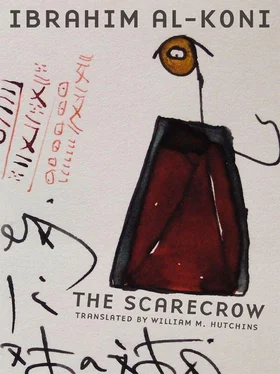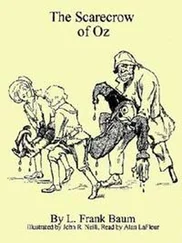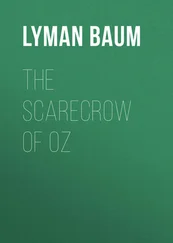Spellbound folks, who liked to detect a sign in every matter, discovered that the secret the caravans bore, the secret that crossed desert wilderness on beasts of burden, did not merely fashion the splendor of oases but actually created the oases. It built their walls. It brought sons there from parts unknown to reside in the houses, populate the markets, stroll down the streets, and plant crops in its earth. With its own magic hands, it built a civilization from nothing and settled it in the labyrinths of the void as a complex to which a traveler headed — even while suspecting this was another ploy of the mirage.
The painful aspect of the matter, however, is that the secret is a transitory treasure that has no spot to call home save the backs of beasts of burden, and these creatures — like people, like poets — suffer from wanderlust and keep on the move. If a caravan unpacked its secret in a place one day, it would doubtless carry it off on the animals’ backs to another location on the morrow.
The afflicted people, who never stopped investigating by interpreting and deciphering news of the times, saw in the flight of the caravans an evil omen presaging the flight of the oasis from its walls.
5
No one knows what the leader was thinking the day he sent the foreign coalition’s leader a new bevy: a long column of women. They marched out of the oasis — escorted by couriers instead of the soldiers who had been their escorts the day they first entered the oasis. The aliens’ scarecrow’s response came in the form of a new talisman: a gray serpent puppet made of camel hair, leather thongs, pieces of fabric, and sticks of wood. This hateful serpent had bloody eyes and a savage snout. It held between its jaws the puppet of a woman with worried eyes and ashen cheeks. She was wrapped in faded rags.
The governor placed the repulsive talisman before the itinerant diviner, who dispassionately translated it into words: “The trick has reclaimed what the treacherous hand took from us.”
The message astonished the courtiers, but the sorcerer smiled enigmatically that day. The vassals did not discern in his eyes the ugly expression that always shook them: weakness.
No one grasped that smile’s secret meaning till tongues repeated news of the spread of an epidemic in the enemy ranks and the destruction of dreadful numbers of soldiers. Then gossips spread the rumor that this epidemic was transmitted to the enemy camp through the women’s clothes. Commenting on the outbreak, the leader said in the courtyard of his glorious fortress: “Woman, who brought bad luck into the oasis’s dwellings yesterday, can transport it to the enemy’s dwellings today.”
The sorcerer’s delight with the epidemic did not, however, last long, because one morning, when he climbed to the fort’s roof terraces and studied the nearby wasteland where the raiders’ forces were stationed, he saw a black mass covering the wilderness and stretching to the horizon in every direction. He observed as many creatures as there are pebbles. They were clinging to the hospitable wasteland like ticks to the hide of a camel. New convoys of soldiers — spawned continually by the Unknown — cloaked the earth till not an inch of it was visible. They advanced quickly and made the corners of the earth shake till the ground itself seemed to be quaking and moving — rather than the creatures streaming across it.
The sight terrified him, and a paralyzing impotence flowed through his body. He was absent for a long time but finally grumbled to himself: “No. These aren’t Azjirr’s tribes. No, since day one we haven’t been fighting against wasteland tribes. The tribes are from the Spirit World! That hideous idol was never the leader of Azjirr. Every sign points to the fact that the creature was of jinni descent. How could I have missed this? Why didn’t I see this before?”
1
He disguised himself in the tattered garments of shepherds, slipped out the servants’ gate, and gazed at the sky, which was decorated with garlands of stars. His eyes sparkled with an enigmatic glint. He listened carefully but heard only the stillness. He descended from the heights and crossed the temple plaza. He turned north and entered the alleys. The walls’ shadows swallowed him for a long way. Before he emerged from the last alleyway, he remembered the council and pondered how base specters called prominent citizens had sullied his actions and turned his good deed into an evil one. They had not been satisfied with distorting or corrupting it; they had gone even farther, spoken maliciously, and secretly conspired to commit evil. They had not merely revealed their loathsome faces; their vengeful eyes had glared at him with an ill-omened gleam when he extracted powerful despair from his body the way tweezers draw a thorn from the foot. Then weakness flooded his soul. Could he forgive them this vengeful signal at the only hour when governors need sympathy that they do not expect from strangers, because they normally are the ones extending sympathy to strangers?
He traversed the lanes, which were masked by rows of walls, and took the route leading to the fields. The singing of the grasshoppers grew louder, and the smell of grass and moist earth assailed his nostrils. This was water’s smell. This was water’s perfume. This was water’s secret — water’s smell that dolts do not detect, not realizing that water moves all the things that scents pervade. Water crosses dead earth and imbues its dirt with a smell. It descends deep into the earth to reach seeds buried in mattamore pits. It revives them and infuses them with its breath to grant them an odor. Even when it tires of playing underground and decides to leave the earth and return to its homeland by evaporating — rising in vapors, passing through the air — it leaves a scent in the void. Water! It has no odor but lavishly grants odors. It has no color but lavishly grants colors. It has no taste but lavishly grants all tastes. Is this not sufficient proof that this entity belongs to the Spirit World?
He crossed the brook. The mysterious liquid gleamed in the irrigation ditches by the light of the stars. The smell of grass, mud, and fig trees grew more intense. He slipped off his sandals and placed them under his arm. He lowered his right foot into the water and sank his left foot into the brook’s mire. He waded in the mud for a stretch and then retraced his steps. The song of the grasshoppers rose like melancholy hymns. He slowly removed his baggy shorts and pulled off his tunic as well. He loosened his head wrap and began to free himself of his veil. He bundled his clothes together and threw them far away. He knelt on the earth and plunged into the mire. The noble liquid flooded over him, teased his limbs, tickled his armpits, and caressed his entire body. Then he sighed ecstatically and sniffed the humid air, which water perfumed with its unknown scent.
He began the process of rehydration as water flowed through his body and he flowed through the mire’s body. He did not sink into the mud; instead the mud sank into him. The pores of his body opened to allow mud to enter, and mud’s pores opened to allow him to penetrate them with all his suppleness, virility, and fluidity. Then he yielded and disappeared in order to struggle with a thirst that swallowing water does not quench. It is a thirst that can be tamed only when a thirsty person renounces his pride and becomes part of the water, the mud, the marriage of dirt and water, earth and sky, wasteland and Spirit World. He wallowed. He crawled right, turned north, and moaned ecstatically. Then he relaxed every muscle of his body and stretched out.
In the earth’s thickets the hymn of the grasshoppers resounded. In the sky’s expanses stars spoke.
He crawled toward the veil.
Читать дальше












